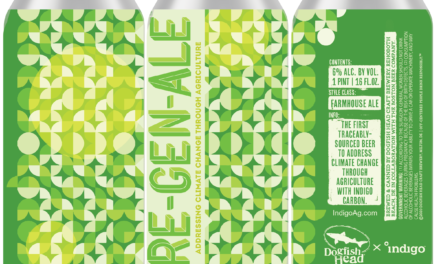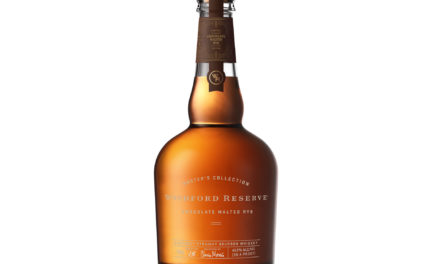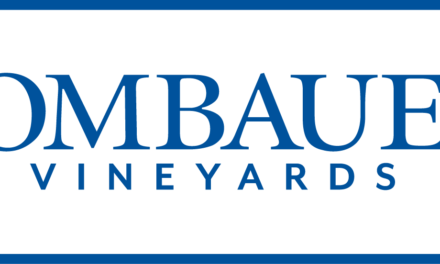Following the law is the law. But in the alcohol beverage industry, keeping up with the lightning-fast rate at which new rules are created and old ones evolve can be as challenging as trying to predict what millennials will want to drink next.
The Republican-controlled 115th Congress passed more legislation than any other in recent history, according to a Pew Research Center analysis. Between kick off in January 2017 and the conclusion of the games on January 3, 2018, Congress enacted 442 public laws, 69 percent of which Pew deemed “substantive.” (The remaining were ceremonial, the renaming of post offices and similar lackluster, largely bureaucratic flourishes of the wand).
But laws in all 50 states are constantly changing as well, meaning that rules regarding the sale, distribution, and importation of alcohol in each state are often considered to be the responsibility of local jurisdictions. Those local jurisdictions then interpret and enforce a combination of federal, state, and local laws regarding the manufacture, sale, and consumption of alcohol. There’s also the small matter of federal enforcement in spirits land. Looking back from 2019, it seems that industry players were actually getting away with quite a bit (whether they realized it or not).
Following the rules suddenly feels like a full-time job for brewers, winemakers, and distillers, but it doesn’t have to be. To make sense of it all and narrow the focus to what changes folks should really be concerned or excited about, we tapped legal minds all over the country. Below, their findings.
Law: Shipping Changes
Who It Affects: Winemakers*, brewers, distillers, retailers
(*Depending on the product, federal law classifies cider makers as either brewers or winemakers.)
What It Does: The direct-to-consumer (DtC) market for alcohol has been booming for years. In 2018, the average price per wine bottle increased by the largest margin—18 percent, to $39.70—since Wines & Vines began compiling reports on the market nine years ago. In addition, winery-direct shipments accounted for 10 percent of all off-premise domestic wine retail sales, accounting for $3 billion in sales, up from $2.69 billion in 2017. In other words, there’s a lot of cash on the line as states adjust their approach to shipping rules. Take Connecticut, where a new law (known as Senate Bill 647) let out-of-state wine stores ship wine to consumers, starting July 1, 2019.

“In-state retailers often lobby against changes like this, because it makes the market more competitive.” —Elizabeth DeConti, GrayRobinson
Previously, consumers in Connecticut were allowed to receive wine shipments from out-of-state wineries, but this change makes Connecticut the 15th state allowing citizens to receive shipments from wine stores, retailers, wine-of-the-month clubs, and auction houses. (Alaska, California, Idaho, Louisiana, Missouri, Nebraska, Nevada, New Hampshire, New Mexico, North Dakota, Oregon, Virginia, Washington, D.C., West Virginia, and Wyoming are the other states allowing shipment.)
Elizabeth DeConti, a shareholder in GrayRobinson’s Tampa office, with more than 20 years of experience focusing on beverage and food regulation, believes this is a space to watch, especially as consumers everywhere push for looser regulations.
“Consumers see changes like this as a victory,” DeConti explains. “[The new law] lets them pick and choose what they want, in terms of producers and prices. But in-state retailers often lobby against changes like this, because it makes the market more competitive.”
Indeed. Reps for National Association of Wine Retailers (NAWR) have long made it a point to challenge what it calls “arbitrary, archaic, and protectionist” shipping laws through “lobbying, media and lawmaker education, and litigation where states blatantly violate the Commerce Clause in their bans on out-of-state retailer shipping.”
In June 2019, seven Supreme Court justices defended the Constitution’s Commerce Clause in response to Tennessee’s residency requirement for liquor retailers. In 37 states, some of which allow interstate winery shipping, interstate DtC shipping is still verboten. The Court’s latest ruling suggests that bills and cases regarding DtC retailer shipping in Illinois, Michigan, Missouri, New Jersey, Iowa, Kentucky, New York, and California may further loosen the strict interstate shipping regulations.

NAWR Executive Director Tom Wark
The NAWR is urging legislators in many states to alter what they deem to be “unconstitutional” wine shipping laws (these include Arizona, California, Idaho, Illinois, Indiana, Kentucky, Maine, Massachusetts, Michigan, Minnesota, Missouri, New Jersey, New Mexico, New York, North Carolina, Ohio, Pennsylvania, Rhode Island, South Carolina, Texas, and Washington state). There’s a Model Wine Retailer Shipping Bill that the NAWR hopes will help “fix” their “unconstitutional laws,” available on the NAWR site for review.
The industry is also paying attention to what happens next in Delaware, as the state considers a law (Senate Bill 49) that would allow wine shipments from out-of-state wineries while barring them from out-of-state retailers.
While NAWR Executive Director Tom Wark has expressed enthusiasm for its move to “drag its wine laws out of the 20th century by allowing consumers to receive shipments [of American-made wine] from out of state,” he also urges legislators to not simultaneously implement a ban on shipments from out-of-state retailers.
Law: The Craft Beverage Modernization and Tax Reform Act
Who It Affects: Brewers, winemakers, distillers
What It Does: Since 2017, 29 temporary tax provisions have expired and more than one dozen others will fizzle out at the end of this year. In an attempt to staunch losses for brewers, winemakers, and distillers—who’ve lobbied members of Congress, saying their continued fiscal health depends on these provisions—a bipartisan congressional task force, led by Chuck Grassley (R, Iowa) and Ron Wyden (D, Ore.) called for the Craft Beverage Modernization and Tax Reform Act to be made permanent.

“Industry trade groups are busy lobbying Congress.” — Ryan Malkin, Malkin Law
The 2019 version of the CBMTA would keep excise tax rates at $3.50 per barrel (down from $7.00) of domestic beer produced on the first 60,000 barrels made by brewers producing less than 2 million barrels per year. It would similarly reduce taxes for winemakers and distillers, with winemakers getting a tax break of $1 for the first 30,000 gallons produced, 90 cents for the following 100,000 gallons and 53.5 cents for the next 620,000 gallons. The CBMTA reduces taxes on spirits from $13.50 to $2.70 per gallon for the first 100,000 gallons produced or imported, then $13.34 per gallon for the next 22,130,000.
“This bill lets producers and importers pay a reduced federal excise tax rate based on limited production,” says Ryan Malkin, principal attorney at Malkin Law in Miami Beach, Fla. “Industry trade groups are busy lobbying Congress. The bill that was introduced removes the end date.”
But will it extend past 2019? The ball is in Congress’ court, with millions of dollars on the line.
Law: Pay for Play Practice
Who It Affects: Winemakers, brewers, distillers, retailers, bars, restaurants
What It Does: In 2017 and 2018, the Alcohol and Tobacco Tax and Trade Bureau (TTB) received a $5 million appropriation to increase enforcement efforts for industry trade practice violators. Boy did it ever. Under the TTB umbrella, a new Office of Special Operations was created to oversee the investigations. Nine Special Ops investigators and a supervisor were hired full-time, plus an unknown number of special ops were assigned to help out on a part-time and as-needed basis.

“[TTB has] built the operation already, and it’s earning so much from violators, why would it stop?” —Justin McGuirk, Reed Smith LLP
“The TTB is targeting what’s known as ‘pay-to-play’ or ‘slotting fee’ infractions,” McGuirk says. “They involve a producer, or one of their employees, either paying or bribing an operator in a bid to increase the sales of their product through preferential treatment.”
Typically, a producer essentially gives an on- or off-premise outlet free product or equipment in an exchange that implies a guarantee of higher sales, McGuirk explains. Since the crackdown started, several high-profile cases have been settled. Bacardi, Diageo, Heineken, and Pernod-Ricard are just some of the household names that have agreed to pay the TTB between hundreds of thousands of dollars to $2.5 million for trade practice violations within the past 10 years.
Now here we are in 2019, and the TTB doesn’t have any funds allocated for investigation, but McGuirk says that the intense level of investigation has continued this year—and will likely well into the future. “[TTB has] built the operation already, and it’s earning so much from violators, why would it stop?” he asks rhetorically.
For producers and on- and off-premise sellers who want to make sure they’re up on compliance, McGuirk recommends attending an in-person seminar or just downloading the TTB’s surprisingly easy-to-follow (if somewhat lengthy, at 106 PowerPoint slides) step-by-step guide titled Federal Trade Practices: What Every Industry Member Should Know. Get a copy at www.ttb.gov/trade_practices/index.shtml.
Law: CBD in Alcoholic Beverages
Who It (Could) Affect: Winemakers, brewers, distillers
What It May Do: This is an area to watch and prepare for, says Marc Hauser, counsel and vice chair of Reed Smith’s cannabis practice team, based in the firm’s San Francisco offices. The so-called “cannabis-beverage” market is likely a multi-billion-dollar opportunity, and one that mid- to large-scale producers have been gearing up for in recent years.
In 2018 alone, cannabis sales in California, Colorado, and Washington topped $5 billion, according to BDS Analytics. By 2024, the legal cannabis market is expected to grow to $41 billion, the vast majority of which will be centered in the United States.
Currently, the cannabis-infused beverage market is a drop in the bucket, due in large part, Hauser explains, to the federal illegality of, say, marijuana-infused wine or beer. “Trying to understand the highly illegal yet highly regulated cannabis market in the U.S. is analogous to delving into quantum physics,” Hauser says.
“Adult use of marijuana is legal in 11 states and the District of Columbia, and medical marijuana is legal in 35. Although it’s still a federal crime to possess, buy, or sell marijuana anywhere, federal agencies have not been prosecuting cannabis companies complying with state cannabis laws.”

“Trying to understand the highly illegal yet highly regulated cannabis market in the U.S. is analogous to delving into quantum physics.” —Marc Hauser, Reed Smith LLP
When it comes to CBD (cannabidiol) in food and beverages, the feds have been more forthright. In response to the descheduling of industrial hemp as a controlled substance and CBD made from industrial hemp in the 2018 Farm Bill, TTB issued a memo in May 2019 stating that the use of hemp or CBD in the formulation of wine, beer, or liquor is illegal. (CBD is an industrial product that only contains trace amounts—if any—of THC, the psychoactive product in cannabis that creates a “high.”)
“It’s still illegal under FDA rules, so you’re not likely to see Evian putting out a product until it’s completely legal under FDA rules,” Hauser says, which is why all of the players with products on the market in the states that have legalized putting CBD in food and beverages are relatively small.
Hemp and CBD beverage sales skyrocketed 134 percent in 2018, according to BDS, with room to grow if—many say, when—the feds greenlight it. Hauser says the working assumption is that it’s not “if,” but “when,” adding it’s a “fool’s errand” to speculate on timing. He does say, though, that it’s generally assumed CBD in food and beverages will be legalized on a federal level before cannabis, and some companies are already working in the grey zone to get product out there.
“Lagunitas Brewing, which is owned by Heineken, is putting out a THC-infused, non-alcoholic IPA in California,” Hauser says. “If they wanted to, they could partner with producers in Colorado and do the same thing. As long as they partner with producers that are properly permitted under state law and take alcohol out of the equation, it’s likely going to be allowed for in-state sales—although federal risk always remains.”
As the world gets more complex—10 years ago, did you think we’d be discussing the possibility of getting big box CBD wine legally delivered to your door?—the laws that govern the world respond in convoluted kind. Make sure you’re following them.











